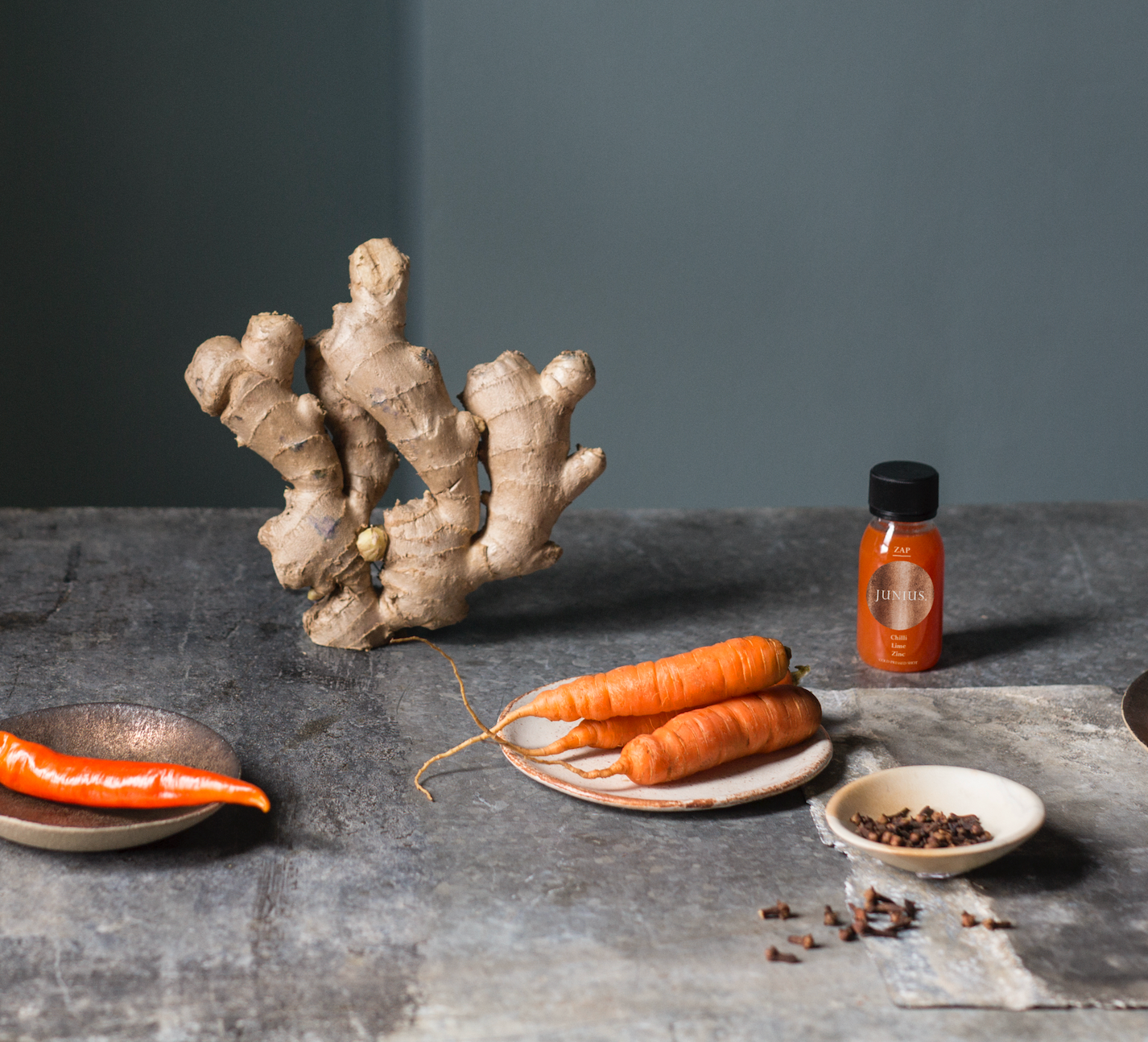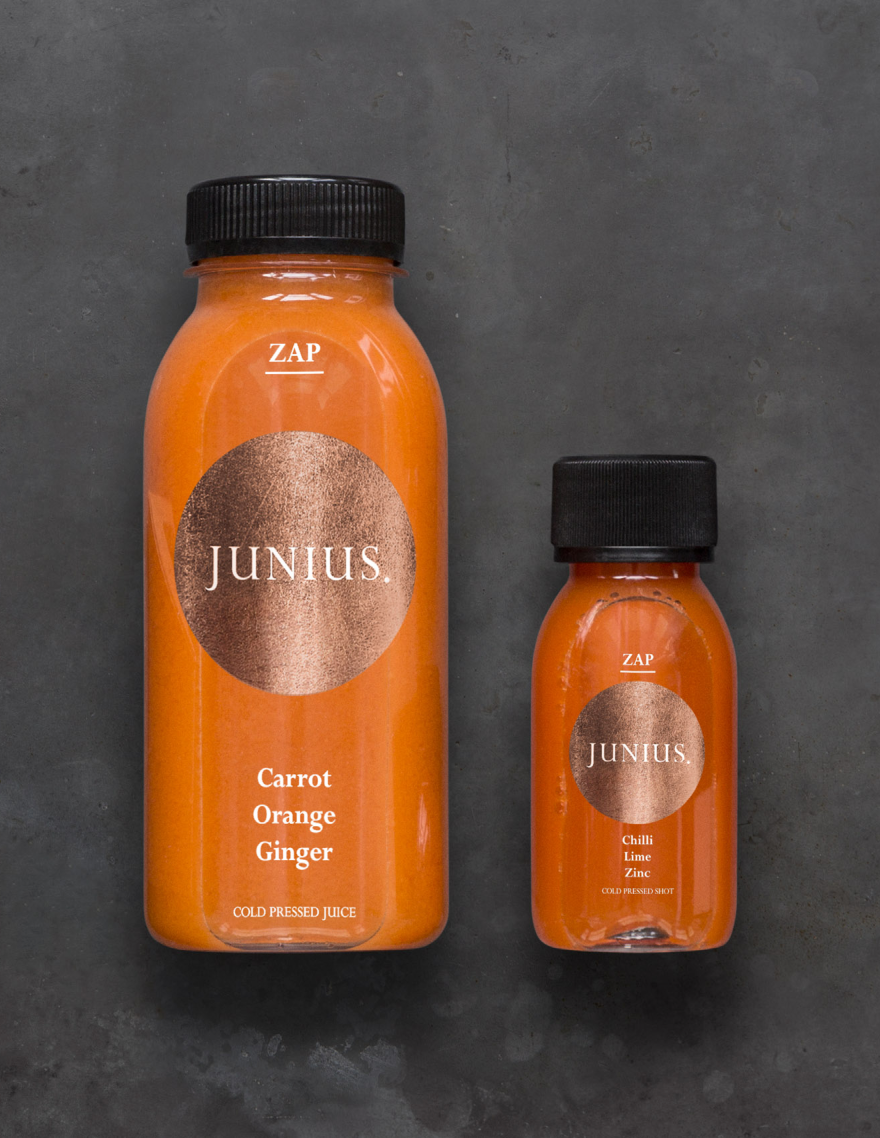The top 14 nutrients for a stronger immune system
Supporting your immune system has never been more important and in this current climate more people are wanting to take control of their own health and support their immune system from the inside out. The good news is that there’s a lot you can do.
Issues arise when our immune system doesn’t have enough support from the necessary nutrients needed to keep it functioning optimally. A lack of key nutrients and chronic stress are two significant factors that negatively impact immune system function and weaken our immune defences. Let’s first look at the immune system in more detail and understand exactly what it is.
In this blog we will take a look at some of the best nutrients for immune support, some of which you may not have thought of in terms of your immune health before. We will explore their beneficial effects on our immunity and how you can start to consume more of them straight away through powerful immune boosting foods and nutrients.

Selenium
Selenium is an essential mineral for human health. Found in the soil and in some foods, it is a powerful antioxidant that fights oxidative stress which means it can prevent damage to your cells, including those of the immune system.
Selenium is an essential mineral for human health. Found in the soil and in some foods, it is a powerful antioxidant that fights oxidative stress which means it can prevent damage to your cells, including those of the immune system.
Studies have shown that selenium “boosts” the immune system and protects against certain pathogens. A deficiency in selenium has been linked with a slower immune response resulting in less ability to fight infections and viruses.
The good news is that selenium is a ‘trace’ mineral, which means it’s only needed in small amounts in order to exert its health benefits. In fact, just 3 Brazil nuts per day can provide the body with a good amount of selenium!
Alongside brazil nuts, other sources of selenium include seafood such as oysters, halibut, sardines and yellowfin tuna, chicken, sunflower seeds, eggs and grass-fed organic beef and lamb.
Glucosamine
Glucosamine is a naturally occurring compound in cartilage; the tough tissue that cushions the joints of the body. Therefore, it’s commonly taken as a supplement for bone and joint health and also to help reduce inflammation in inflammatory joint conditions such as rheumatoid arthritis.
In supplement form, glucosamine is garnered from shells of shellfish or made in a laboratory. In the same way that glucosamine works to repair and strengthen cartilage in the joints, it can also help to repair damaged tissue in the lining of the gut, which is immune-protective as 70 percent of your immune system lives in the gut lining!
In food form, glucosamine is naturally present in the shells of shellfish, animal bones, bone marrow and fungi. Bone broth, where bones of chicken or beef have been simmered for 24 hours, is a fantastic source and just one cup of warm bone broth per day (preferably in the morning on an empty stomach for maximum absorption) is a great way to increase glucosamine levels in your body.
Vitamin A
Vitamin A is a micronutrient needed for healthy skin, good vision and for supporting the tissue that lines various organs in the body, such as the respiratory tract. It is involved in the development of the immune system and plays regulatory roles in immune cell actions and responses.
There are 2 forms of vitamin A; beta-carotene, the non-active form, and retinol, the active form.
As retinol is the active form this is the best form in which to obtain vitamin A, however beta-carotene can be converted into retinol inside the body but this conversion may not be optimal in some people.
Beta-carotene is found in yellow and orange fruits and vegetables such as carrots, squash, peppers, and apricot, plus dark green leafy vegetables. Retinol is found in animal foods only, specifically liver and other organ meats, eggs and oily fish, such as salmon, mackerel and sardines.
Elderberry
Elderberry (Sambucus nigra) is an herb traditionally used to treat infections and heal burns. This herb is rich in vitamin C and other antioxidants and has more recently been used for the prevention of flu because research shows it to have the ability to reduce both the severity and the duration of cold and flu symptoms, respiratory infections and even viruses.
Elderberry is predominantly taken in supplement form as a tincture/drops or capsules to help reduce cold and flu symptoms. You can find elderberry in good health food shops and reputable herbalists and inside the Junius ZAP-BERRY liquid formula.
Reishi mushroom
The Reishi mushroom is a fungus that grows in humid areas around Asia, America, Australia, and Europe and research has found that it can encourage the production of cells in the immune system that fight infections as well as being able to improve the action of white blood cells. White blood cells do important work to protect the body from infection and viruses.
You can use dried reishi mushroom to make teas or add into stir-fries and soups. It can also be found in powder form to add into porridge, smoothies and yoghurt. Fresh reishi mushrooms are becoming more commonly available in supermarkets although they can be quite chewy and a little bitter. We prefer it dried or in powder form as that’s the easiest way to include it in optimal doses.
Colostrum
Colostrum is a breast fluid produced by humans, cows, and other mammals just before the breast milk is released. It is incredibly nutrient-rich and supportive of IgG antibodies and cytokines – key cells of the immune system responsible for modulating immunity and reducing infections of the respiratory tract.
Colostrum is most commonly taken in powder or capsule form. As a powder it can be added to water, a cold pressed green juice or a smoothie.
Melatonin
Melatonin is a hormone that regulates our sleep–wake cycle, also known as the circadian rhythm. Melatonin should start to increase at night time to aid deep and restorative sleep.
Studies have also found it to be a powerful hormone for the immune system in that it can help to reduce the inflammation commonly present with viral infections specifically in the respiratory tract.
Some foods contain melatonin, such as oats, tart cherries like Montmorency and freshly pressed cherry juice, bananas and walnuts. Including these foods closer to bedtime can not only help you get a better night’s sleep but also support your body to prevent and fight viruses.
Vitamin D
Vitamin D has been well-studied for its immune system enhancing and protective effects and we’ve talked about this extensively in a previous blog which you can read here.
Sunshine is the most potent source of vitamin D but unfortunately, we just don’t get the amount of sun here in the UK necessary to provide us with optimal levels of this vital nutrient. Some foods contain small amounts of vitamin D such as salmon, mackerel, fresh tuna, sardines, liver and egg yolk. For optimal levels we suggest testing your vitamin D levels to know your current status and then supplement accordingly. Ask your GP or do it yourself via a home finger-prick test kit. Junius’s ZAP D3 provides 2000iu per one drop which you can simply put into water or Junius drink each day.
Beta-glucans
Beta-glucans are naturally occurring polysaccharides (long chains of carbohydrate molecules) that are produced by bacteria, yeast, fungi, and many plants. They are a type of soluble fibre found naturally in cereal grains such as oats, yeast, and certain mushrooms such as shitake, and usually sold as a supplement. A wealth of research shows that beta glucans can act as immunomodulators, which means they can trigger a cascade of events that help regulate the immune system and make it more efficient.
Beta-glucans are found naturally in oats, barley, rye, baker’s yeast, and reishi, maitake and shiitake mushrooms.
Zinc
Various research papershave shown that zinc may be protective against many viruses and may reduce the risk of lower respiratory infection.
Zinc can affect our sense of taste and smell and loss of taste can sometimes be indicative of a deficiency in zinc.
It’s important to reduce potential deficiencies in zinc by increasing your body’s stores by adding zinc-rich foods in your daily diet.
Foods richest in zinc include organic grass-fed beef and lamb, shellfish (especially oysters!), brown rice, buckwheat, oats, egg yolks, green leafy vegetables, mushrooms, potatoes, and most nuts and seeds.
Curcumin
Curcumin is the active ingredient in turmeric and has been shown in various studies to have the ability to modulate the activation of T cells, B cells, macrophages, neutrophils, natural killer cells, and dendritic cells. This basically means that curcumin is a powerful nutrient for the immune system
Grate fresh turmeric root into soups, porridge, salads and stir-fries or throw it into a smoothie!. Add ground turmeric to all your cooking, especially scrambled eggs and omelettes as the lecithin in eggs can help to increase the absorption of curcumin. You can also try a cup of turmeric ‘golden’ milk daily in place of regular tea or coffee.
N Acetyl
N-acetylcysteine (NAC) is the supplement form of cysteine, an amino acid that helps the body make and use health protective antioxidants. NAC promotes glutathione production in the body – glutathione is a master antioxidant that has been shown to support the immune system.
Glutathione can help to protect the lungs against pathological conditions and provide some viral protection. A controlled clinical study in 2020 of 262 primarily elderly people found that glutathione significantly reduced flu-like episodes and days of bed confinement.
NAC itself isn’t available in foods but cysteine is, and the body can make small amounts of NAC from cysteine. Foods that contain cysteine include chicken, turkey, duck, eggs, cheese, natural yogurt, sunflower seeds, beans and lentils and oats.
Vitamin C
Research suggests that bright, vibrant and deeply coloured vegetables and fruits can support our immunity significantly and may help prevent or reduce the severity of viral infections – this can be attributed to their rich vitamin C content. Sadly, so many of us don’t eat enough of the fresh fruits, vegetables and other foods we need to keep ourselves healthy year-round.
Diets rich in colourful vegetables and fruits can provide us with an array of protective phyto (plant) chemicals including Vitamin C. Ideally aim for 8 veg and 2 fruit per day, from the rainbow of colours, to expose your body’s cells to the array of nutrients from all the different colours.
You’ll find vitamin C in most of the colours but especially go for more leafy green vegetables (such as spinach, cabbage, broccoli & kale), bell peppers, brussels sprouts, strawberries, citrus fruits, kiwi and papaya are all excellent sources of vitamin C.
Prebiotics
Prebiotics are a special type of plant fibre that helps encourage the growth of friendly bacteria (pro-biotics) in your gut. We need both prebiotics and probiotics as they both support the gut in different ways. Prebiotics are carbohydrates that cannot be digested and instead arrive at your lower digestive tract, where they get degraded, or eaten, by the bacteria there, acting as fuel to help the healthy bacteria to grow and flourish. 70 percent of your immune system cells are located in your gut and therefore it’s so important to support good gut health and encourage the growth of friendly (protective) bacteria.
Top sources of prebiotics include leeks, onions, garlic, Jerusalem artichoke, oats, flaxseed, and unripe (green) banana.
So there you have it, our 14 favourite nutrients and immune boosting foods.
We hope this information empowers and inspires you but by no means overwhelms! Pick one nutrient, start there, then build on that one by one gradually over time. You are in this for the long haul and your immune health will thank you for it!
Healthy wishes, the Junius Team.



